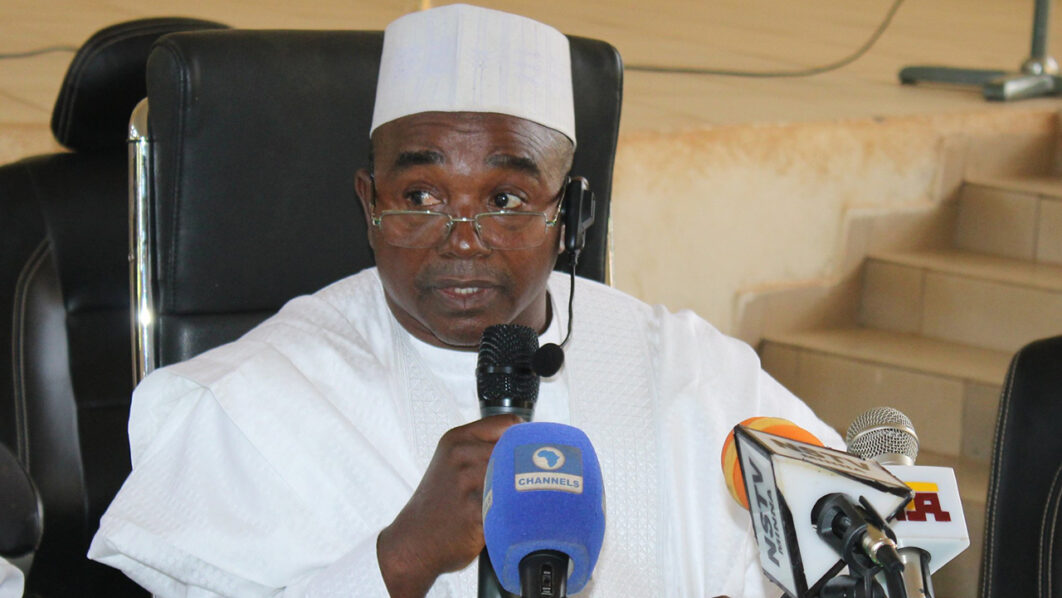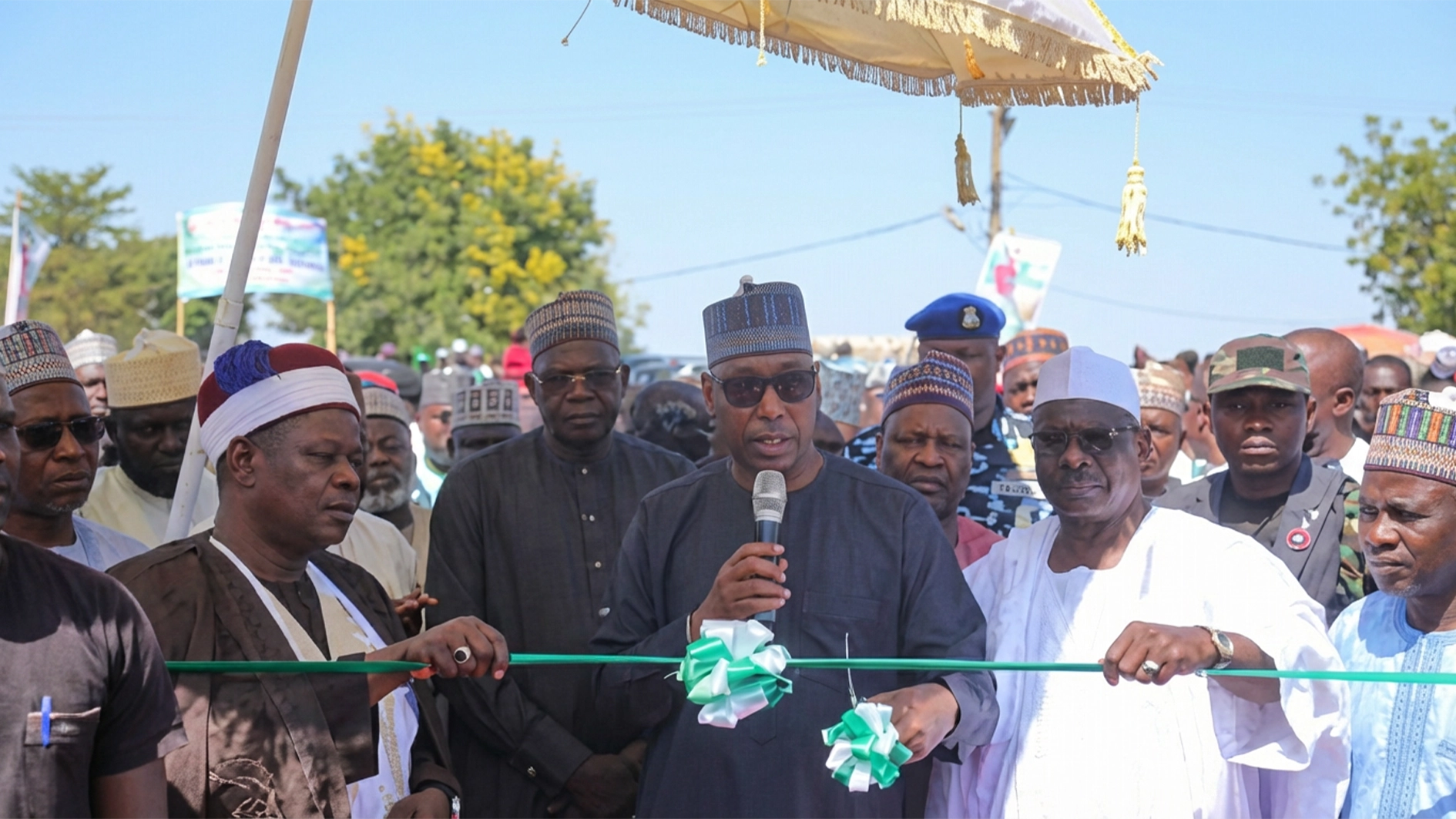
Records of academic excellence are getting stained by the frequency of institutional compromises and examination malpractices. But the school system must clean its records to enhance credibility. It begins with purging the system of saboteurs and making cheating unattractive, IYABO LAWAL writes.
At the recently released Senior School Certificate Examination conducted by the National Examination Council (NECO), the Registrar, Prof. Dantani Wushishi, disclosed that 40 secondary schools across 17 states were involved in mass cheating.
In the same vein, the West African Examination Council (WAEC), through the Head of Nigeria Office, Dr Amos Dangut, said the body withheld results of about 215,267 candidates for alleged malpractices.
The Registrar, Joint Admissions and Matriculation Board (JAMB), Prof. Ishaq Oloyede, while announcing results of this year’s Unified Tertiary Matriculation Examination (UTME), also said the board released results of 1,842,464 candidates, withholding some 64,000 candidates’ results for possible examination misconduct. Results of 531 others were eventually released.
Cheats in the country’s academic ecosystem are not playing catch-up. They are matching the various academic institutions’ measures to deal with the embarrassing and insidious menace.
Cheating has become so glamourised in Africa’s most populous country that a cheat strolled into the federal parliament to become the number four most powerful individual. He was nailed, named and shamed. But he got a state pardon, and found his way back in the government!
With what academic qualifications?
More Nigerians are seeing exam malpractice as a norm or they are becoming numb to the insidious plague.“He who knows the way knows the books” is a common statement in Nigerian schools. The two words that interpret the statement are ‘examination malpractice,’ a menace that has become a norm, and the undoing of quality education in Nigeria.
The fight against exam malpractice in Nigeria has been ongoing for years, but it has built a strong defence line fortified by characters within: students, teachers, parents, and poverty.
All these combined to make the hope of victory over it a mere dream. The birth of exam malpractice in Nigeria could be traced to 1914 when it was reported that the question papers of Senior Cambridge Local Examinations were leaked to the students even before the exam day.
From then on, the practice gradually became an unwelcomed guest who doesn’t want to leave. Eventually, it became contagiously bold, infecting more and more people. Those who would have frowned at it saw it as an easy way to walk over, and the trend escalated to an abysmal state that has swallowed not only quality education, but its effect in the society.
In 1970, the West African Examination Council (WAEC), to its chagrin, witnessed for the first time, mass cheating during the examinations. Enabled by more participants who had sacrificed morality on the altar of easiness and gain, exam malpractice hit a new alarming height. Parents and guardians, teachers and examiners, all became culprits in the cynical game. It was spreading like a virus and needed to be contained.
In 1977, a judicial commission of inquiry was set up to ascertain the reasons for the shortcomings in the conduct of West African Senior School Certificate Examination (WASSCE) and the late release of results.
The committee’s findings didn’t surprise many, as it was something obvious to WAEC staff: an excessive workload that has resulted in negligence and inefficiency. In the recommendation of the committee, the proposal to establish other examination bodies was made, as it would take some loads off the shoulders of WAEC, and provide room for it to administer examination affairs efficiently.
Cutting the size of examination candidates was also recommended, as overcrowding was reported to have enabled the examination’s body inability to invigilate exams credibly. But the recommendation did little or nothing to salvage the situation, 13 years later, the numbers leapfrogged.
In 1990, a survey reported that about 70 per cent of students admitted to having engaged in one form of exam malpractice or the other. The report noted that from 1991, the menace had taken a new more sophisticated dimension in both secondary and tertiary education institutions, prompting the government to enact a law making any form of exam malpractice punitive by four years imprisonment. But it became more of encouragement than deterrence.
By the year 2000, about six per cent of 636,064 candidates were involved in one sharp practice or the other. But then, it was only the tip of the iceberg. In 2001, five per cent of the 1,025,185 examination candidates sought the shortcut to pass. In 2002, 10.5 per cent of the 909,888 examination candidates got involved in examination malpractice.
In 2003, the percentage of examination malpractices moved up to 11 per cent from 1,066,831 candidates who sat the examination. The year 2004 saw another increment: out of the 1,035,280 candidates, 11 per cent cheated.
The figures have been on the rise on a year-on-year basis.
Efforts to find a permanent solution to the cankerworm eating through the credibility of education in Nigeria have been hitting a brick wall. The emergence of other examination bodies like NECO and National Board for Technical Education (NABTEB), did cut the workload for WAEC, but then provided more rooms for malpractice.
Examination malpractice has become a thorn in the flesh of the council because measures previously taken did not yield deterrent results. In their determination to quell the menace, the examination bodies had stipulated punishments against anyone caught in the act. The sanctions include cancellation of candidates’ results, barring of candidates from the examinations, and de-recognition of schools, among others.
Even the four-year jail term enacted in Nigerian law is as good as the others. The then council spokesperson, Evelyn Kandakai, registered her displeasure while highlighting the consequences of examination malpractice on national and sub-regional development.
She described it as “destructive” and what is more painful is that parents have become part and parcel of education corruption.
“Examination malpractice represents one of the worst forms of corruption in the sector. Two very important measurement concepts are seriously compromised. Validity, which centres on whether the test measures what it is supposed to measure, and reliability, which looks into whether the test results are consistent.”
The agencies have continued to deploy all weapons in their arsenal and utilise every available opportunity to fight and discourage the die-hard perpetrators of examination malpractice.
“We have made frantic appeals to all stakeholders in the education sector to partner with us in the fight against this scourge that is endangering the quality of academic achievements and human capital development in our sub-region. The persistence of examination malpractice and its devastating effects on educational assessment and evaluation in the sub-region have worsened with the advent of social media,” Kandakai said.
Other heads of educational organs also expressed concerns over the intellectual ill the negative trend will bring to bear on the overall development of the country and sub-region.
They noted that those who cheated their way through the exams become liabilities instead of assets to the society because they believe that honesty is a long route to success.
This assertion can be substantiated by many instances, among them, public office holders who have been caught up in the mess of certificate forgery, evidence of viral impact examination malpractice has exerted on Nigeria.
There have been over seven public office holders caught in certificate forgery controversy; they are all evidence of the debacle that has been nurtured through decades of examination malpractice.
Crafty devising of smuggling answers to examination questions requires partners. Parents, teachers, and students have become yoked in the cynicism. Greed, meagre wages and underpayment of academic staff have provided the sanctuary for examination malpractice to thrive.
Private schools’ administrators advertise special centres and charge exorbitant prices for examination registration. In some cases, students choose whether to sit exams or have someone else sit in their stead. In public schools, students who paid enough are provided with answers, while the invigilators are bribed to turn a blind eye.
A youth corps member, who served in Sokoto State, narrated how the authorities would keep invigilators entertained far away from examination halls, while the teachers write the answers on the board for students.
In 2021, the Commissioner for Education in Kogi State, had announced that 47 schools in the state were banned by WAEC from serving as centres for its examination due to blatant disregard for the council’s examination of malpractice rules. The schools were reported to be notorious for aiding and abetting examination malpractice. Other schools were also sanctioned around the country.
In May, JAMB announced in its weekly bulletin that five persons were convicted for their involvement in one form of examination malpractice or the other. The board also stated that 76 computer-based test (CBT) centres were de-listed for their involvement in malpractice.
Attempts by governments and education authorities to quell the surge have yielded little or no result. It, therefore, highlighted the need for a proactive and innovative approach.
In view of the challenges, the Federal Ministry of Education said it has developed kits that will enhance the invigilation of examinations across the country.
An educationist, Dr Bolaji Aduroja, lamented that examination malpractice has become a monster tearing through education and other sectors of the economy, calling for collective efforts to fight the monster to a standstill, and preserve the integrity of Nigerian education.
Aduroja said the whole situation is worrisome and called for concerted efforts from all parties. He expressed confidence that the measures taken so far will help to realise fraud-free examinations in Nigeria.
“It is also interesting to note that the Federal Ministry of Education, through the exam ethics desk, in collaboration with all relevant exam bodies, has developed monitoring instruments.
“This has been attested to be of an international standard and has been successfully used to monitor exams in JAMB, NECO, TRCN, and NTI,” he added. The founder of EEMI, Mr Ike Onyechere, also voiced his concern over the matter. He said examination malpractice has become not just an easy way out for students, but a cartel.
Onyechere explained: “Exam malpractice has since gone beyond being a matter of indiscretion by students trying to secure an unfair advantage to pass examinations. It is now an organised criminal enterprise, with ready marketing, willing and conniving parents and school operators.
“It is akin to money laundering, smuggling, human trafficking, kidnapping, operated by business syndicates, whose core business is to make money by compromising examination systems in primary, secondary and tertiary education.”
Quality education is manifest by innovation and critical thinking that results in development. In a nation where exam malpractice thrives, myopic mindset, ignorance, disingenuity, and corruption characterise the people, and underdevelopment tells the story.
The situation, experts noted, is not hopeless. They tasked the country’s agencies responsible for the promotion of ethics to do more than providing soundbites and visuals. Their messages should be directed to the hearts as well as heads of everyone involved in the malpractice.
They reminded the government that exam malpractice is a crime and suspects should be prosecuted accordingly.
They also noted that the society, using the media and other platforms, should disseminate messages that deliberately de-emphasise materialism and ‘paper’ qualifications.
What is more: they suggested that honesty should be handsomely rewarded; not once in a while, but all the time. Many stakeholders also noted that overpopulation in classrooms often results in cheating. They urge the government to provide more schools, build more classrooms. Then, they talk about providing adequate and prompt remuneration for the staff of academic institutions.






